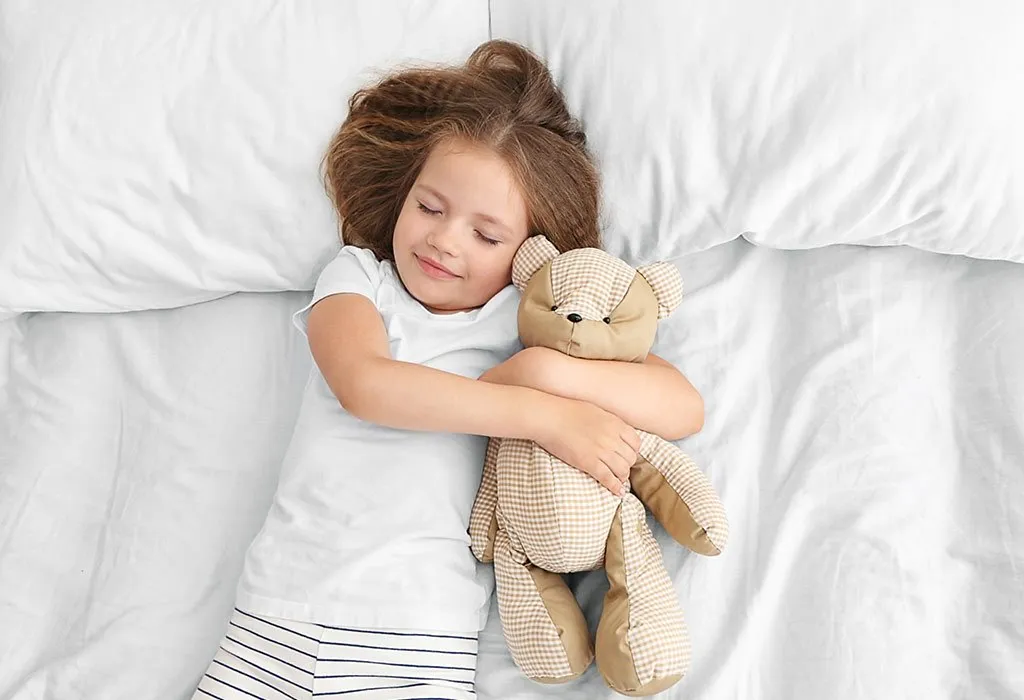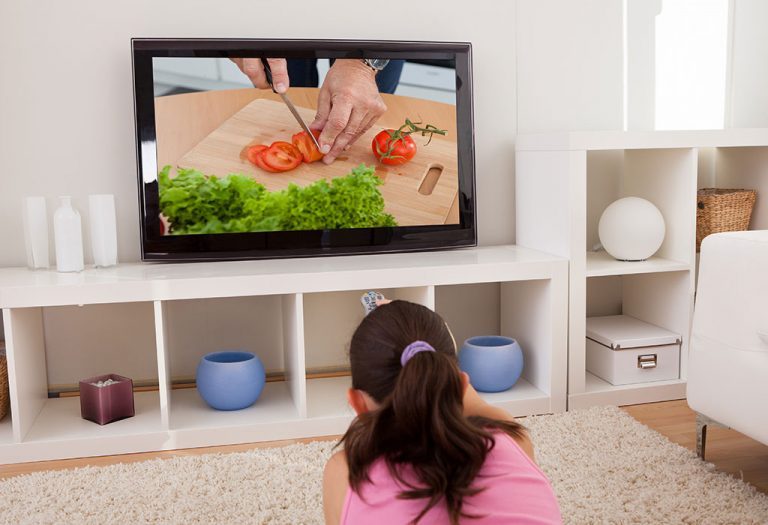How to Get Kids Fall Asleep Fast – 10 Best Tips

As children grow up, putting them to sleep becomes an impossible task for parents. The bedtime approaches, and their level of activity increases. This is the time when all parents should be disciplined because we all know by experience that if kids stay up late, it means waking them up for school the next day is practically impossible. Working on your child’s sleep hygiene is extremely important to help them get better sleep, health, and concentration in their tasks. So, how to get kids to fall asleep fast? To end your misery, we have brought you some useful tips that will help you put your kids to sleep easily.
How to Make Your Kid Sleep Instantly at Night
Putting your kids to bed at night can be a pain for some parents. So, listed below are some tips to help you out (1).
1. Set a Routine
Would it be far-fetched to think that you can train your child’s body to start feeling sleepy? Get him used to a routine where he can feel sleepy and not put up any resistance. For example, dinner, then homework, followed by a glass of milk, and finally going to bed.
2. Create a Good Sleep Environment
Studies have shown that the surroundings of a child play a big role in determining sleep. Some include reduced noise levels, minimal lighting, and optimum temperature. This means that if you live in a noisy neighbourhood, make sure you close the windows and shut the doors. Unless your child is scared of the dark, there is no harm in turning off the lights, as it can affect their ability to sleep quickly. Finally, during the summer months, make sure that you have a functional air conditioner or cooler in your child’s room.
3. Bedtime Stories
For pre-schoolers, this is a great way to get them to look forward to bedtime. Reading bedtime stories isn’t just about being a doting parent, as it may seem. Studies have shown that reading bedtime stories and incorporating the same as a routine has improved sleep for children under six years. For those who are working, you can make a voice recording to narrate the story. You can also embed instructions into the narrative by saying things like, “Now turn the page to see what happens next!”.
4. No Electronic Gadgets Before Bedtime
Your kids will be stubborn, but you will have to be a little strict if you want them to have sound sleep. A 2011 study shows that the blue light emitted from computer screens, mobiles, and televisions inhibits the production of melatonin, which is a hormone produced by the pineal gland and helps induce sleep (2).
5. Proper Diet
Believe it or not, your child’s eating habits can affect his ability to get good sleep. Avoid letting him indulge in sugary treats and desserts during dinner, as it can affect sleep. A study by Columbia University showed that eating fatty foods and sugary treats has been known to disturb sleep. Instead, bananas can be eaten as they contain tryptophan, which is known to have a positive effect on insomnia. Giving your kids fibre-rich meals also helps them sleep.
6. Make Bedtime Fun
To get your kids to sleep, you may make it mandatory for them to sleep at a particular time. While this may work sometimes, this can be counter-productive in the long run, as you have no idea if they are lost in thought under their sheets. Instead, what can be done, particularly for preschoolers, is that they can have a favourite toy that they can hug only during sleep time. This will be a motivating factor to go to bed early.
7. Communication
For kids who are a little older (5-8 years), talking to them before they sleep is essential, as school can be tough, and they may be facing anxiety issues. Anxiety has been known to cause sleep deprivation, and if your child is having difficulty sleeping, this could be it. Talk to them about school or anything else that you suspect may be affecting them. Talking in itself is helpful and may lead to better sleep, even if a solution is not available.
8. Waking Schedule
Just like you set a sleeping schedule, there should be a waking schedule too. If you allow them to get up late, in the morning, they will be in a rush to reach school. Therefore, try waking them earlier during the day, and you’ll see them sleep much earlier than usual.
9. Exercise
A study conducted by Monash University in Australia showed that exercise is not limited to staying fit; it is also for getting good sleep. Make sure your kids get enough playtime in the evening. Playing outdoors is a great form of exercise, but your kids won’t consider it an exercise. This is one tip that can be implemented by you even without reminders!
10. Encourage Self-Soothing
For older kids, anxiety can be part and parcel of their lives. While you may have talked to them about any issues they might face, they may get up in the middle of the night. Encourage them to calm themselves down and come to you only as a last resort.
FAQs
1. How much sleep do school-going children require?
The National Sleep Foundation suggests that children of school-going age should get about 9 to 11 hours of sleep each night (3).
2. What health issues do children face with bedtime use of technology and irregular sleep patterns?
A 2017 study published in the Sage Journals found elevated body mass index, poor attention, and reduced sleep quality among children with bedtime technology use (4).
Sleep is something that is vital for brain development, and if your kids sleep on time and have a sound sleep, their brains stay active throughout the day. As they need 10 to 13 hours of sleep every day, the above-mentioned tips on making a kid fall asleep should help in getting the desired effect. A consistent bedtime routine ensures reduced night wakings, better sleep quality, shorter sleep onset latency, and increased sleep duration, which in turn ensures good health of the child (5).
References/Resources:
1. Nemours KidsHealth – 10 Ways to Help Your Child Get a Better Night’s Sleep
2. PubMed – The impact of light from computer monitors on melatonin levels in college students
3. National Sleep Foundation – How Much Sleep Do Babies and Kids Need?
4. Sage Journals – Bedtime Use of Technology and Associated Sleep Problems in Children
Also Read:
Sleep Talking in Children
Sleep Terror in Toddlers & Kids
How Much Sleep Do Children Need
How to Make Your Child Sleep Alone?
Was This Article Helpful?
Parenting is a huge responsibility, for you as a caregiver, but also for us as a parenting content platform. We understand that and take our responsibility of creating credible content seriously. FirstCry Parenting articles are written and published only after extensive research using factually sound references to deliver quality content that is accurate, validated by experts, and completely reliable. To understand how we go about creating content that is credible, read our editorial policy here.
















.svg)
















